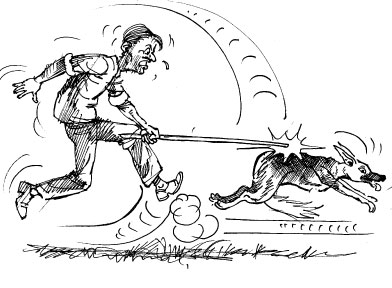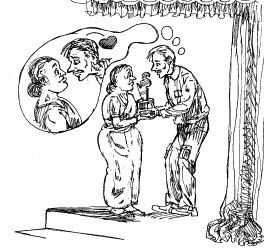'Rains of destruction' -a contemporary story of many facets but 'too
short' a short story
By Dilshan BOANGE
One of the remarkable elements that struck me as noteworthy in Ranga
Chandrarathne's piece of short fiction titled "The rains of destruction"
which appeared in Montage on December 12 is that it captures a
significant facet of contemporary society that very much marks the urban
and non-urban lifestyles of present, and that is 'Digital discourse'.
The subject area of digital discourse was something that I came to learn
about in my final year at Colombo varsity in one of Dr. Dushyanthi
Mendis's courses -Discourse analysis theory.
Digital discourse
Digital discourse looks at the rather significant and dynamic aspect
of how language and ICT affect each other, which is imperative to
understand how contemporary society is being shaped. From e-mails to
sms, dealing with the dynamics related to communicational techniques and
language politics that includes non alphabetical characters/signs such
as the use of a smiley (called emotiocons on yahoo email), and sms
abbreviations, digital discourse is certainly an area of academic
research interest that has gradually made its way into enriching fiction
narratives in contemporary works of English fiction in the west.
 Ranga Chandrarathne's story has hit on a rather significant facet of
contemporary society in Sri Lanka depicting a strand of a society which
has certain younger segments in virtual immersion in mobile telephony.
The contemplations of the narrator's voice on the 'credibility' of the
text message with its accusations injurious to the character of
Dharmadasa Batuwangala who is spoken of as an eminent figure in artistic
and civil society circles, is another line of thought that provides
ground to discuss some of the dilemmas and crises in contemporary
society and developments in ICT. This pivotal element of the text
message factor in my opinion is somewhat significant in looking at what
directionality contemporary Sri Lankan fiction in English could develop. Ranga Chandrarathne's story has hit on a rather significant facet of
contemporary society in Sri Lanka depicting a strand of a society which
has certain younger segments in virtual immersion in mobile telephony.
The contemplations of the narrator's voice on the 'credibility' of the
text message with its accusations injurious to the character of
Dharmadasa Batuwangala who is spoken of as an eminent figure in artistic
and civil society circles, is another line of thought that provides
ground to discuss some of the dilemmas and crises in contemporary
society and developments in ICT. This pivotal element of the text
message factor in my opinion is somewhat significant in looking at what
directionality contemporary Sri Lankan fiction in English could develop.
The sms/text message as a narrative device
Although the story revolves around the digital discourse facet of
text messaging (which is very telling of how common and popular sms has
become as a mode of interpersonal and group communication and
information circulation) one may suggest that one of the shortcomings in
the narrative of work of fiction that finds a firm elemental base on
text messaging to build the story's flow/chain of acts and events, Ranga
Chandrarathne has not provided a single text message to the reader in
the course of the narrative. At one point where the narrator speaks of
fully digesting the crux of the digitally discoursed lament of the
wronged woman, the author provides the following lines -
"The words became clearer. "He ruined me; my money, my jewellery, my
self respect, my life."
What needs to be understood here is that the above lines do not
appear as the sms but the narrator's rendering of the text message's
idea (or perhaps the gist of it) sought to be communicated. Therefore,
this is once again the autonomy of the 'narrator's consciousness' that
determines the textual depictions for the reader.
Please note that I am adhering to a perspective of postmodernist
literary analysis propounded by the likes of Roland Barthes, in
proposing the text (to which the narrator's voice would belong) be given
certain autonomy from the authority of the author (the creator of the
text), and therefore the representations of the narrative are looked at
being of the narrator's consciousness while the craft and technique
constructed to narrate the story, are viewed as what Ranga Chandrarathne
(as the author) has devised for the reader.
The fact that digital discourse is thematically a key ground that
builds the story merits some 'texturing' from a point of diversifying
the 'narrative devices' (to which prose and dialogue belong) to capture
a more compelling narrative.
If the author had included the text messages into the body of the
narrative in the typical sms language that one finds shaped by code
mixing, and abbreviations (which are dynamics affected by technological
dimensions such as typing space, typing speed etc) it may have given a
more contemporary textual- structure/assemblage enhancing the text's
thematic value from a ground of narrative technique.
Story scope and length
The plot and the theme(s) built up through the first person narrative
in "The Rains of Destruction" resonates with many societal issues in
present day Sri Lanka. However whether the author has done sufficient
justice to the scope(s) that spread out through the varied themes woven
into the story needs investigation.
The emotional crises presented through the female character of Senari
aka 'Charundya' has potential to be dwelled into and developed further
as to what more fulsome emotional spaces can be uncovered from one so
pitifully victimized.
True, the story is narrated from a first person subjective narrative
vantage, and thereby can only capture what can be treated as 'perceived
by' the narrator, unlike the more traditional 'all knowing' third person
narrative voice. However, the depth of the issue and the empathetic
narrator could present a more developed investigation into the crises
and possibly even seek what answers, solutions may be discovered to ease
the plight of persons so callously wronged as Senari.
What may be said on this aspect of the discussion is that the weight
and profoundness of the issue and the pathway charted by Ranga
Chandrarathne seems to show signs that "Rains of Destruction" could
reach greater potentials if it wasn't restricted to the length
stipulations for 'short stories'. Of course, to demarcate a work of
fiction as a short story, novelette, novella or novel mainly relates to
concerns of the publishing industry and its classifications of genre;
but the 'scope of a story' when it is being conceived and developed may
show to the writer what spans it may take in the course of
materializing.
 It is in this context that word length stipulations may impede the
work's full potential. And it is in this sense that I believe (on
account of the scope of the story based on the weightiness of its
theme(s) ) that Ranga Chandrarathne may have constructed a work of
fiction which is somewhat too short, and does seem to flit from one
significant juncture to another. It is in this context that word length stipulations may impede the
work's full potential. And it is in this sense that I believe (on
account of the scope of the story based on the weightiness of its
theme(s) ) that Ranga Chandrarathne may have constructed a work of
fiction which is somewhat too short, and does seem to flit from one
significant juncture to another.
Framework for character analysis
What may be discerned in the course of analysing the text is that
Ranga Chandrarathne has created a ground for character analysis through
the deliberations of his narrator. The story does present a certain
unlabelled methodology to assess and analyse a character from various
viewpoints that are at times societal, rather personal, and also
anecdotal. The character of Dharmadasa who is the focus of unravelling
is dissected at various levels and the 'tools' (if one may suggest so)
used are very interestingly an assortment that can be viewed as varying
in their truthfulness factor and thereby brings up questions of
credibility and accuracy of any final conclusions. This seems very much
the case in contemporary society where an sms or email can trigger off a
whole set of actions and reactions with the truth factor being
unsubstantiated.
The fact that the narrator brings out a number of incidents and
cross-referential material(s) which may show a marked societal dimension
(rather than a technical one) in pursuit of seeing an individual's
truest state of being shows that there is a sizeable conflict between
the society creature that is Dharmadasa and the shrouded secret
individual within him.
A possible exposition and critique of the duality that contemporary
man may be accused of in this world of mask borne charades that simply
reinforces the Aristotelian maxim -"Man by nature is a political
animal."
|

